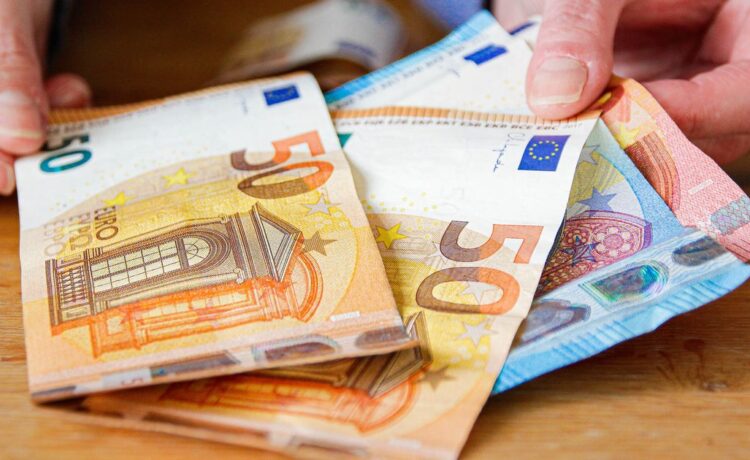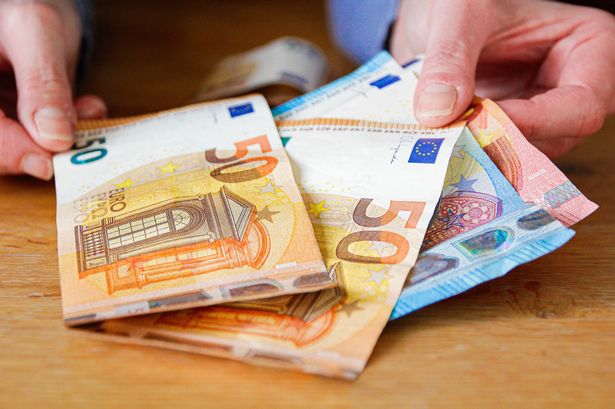Holidaymakers are being told not to try and use certain bank notes as they may be refused
For some holidaymakers cash is still king while they’re abroad as it allows them to keep a track of what they’re spending and stay within budget.
And there are places credit and debit cards aren’t accepted so having a stash of cash is a good idea to save you landing in a sticky spot.
But tourists in Spain are being warned that some Euro notes are problematic due to changes that are being implemented in the country.
If you’re using Euros for dinners, souvenirs and to pay for day trips, EuroWeekly has warned that using some notes in Spain and the Canary and Balearic Islands is becoming more difficult.
They said that when exchanging your Sterling for Euros, you should not accept €500 notes from the banks or bureau de change.
This is because the European Central Bank and the Bank of Spain stopped production of these high value notes back in 2016. And while there are still some of the purple notes in circulation, they might not be accepted by shops and restaurants, reports The Express.
The notes can be associated with illegal activities and could well be turned down if you use them to try and pay. Instead, it’s suggested you ask for smaller notes instead.
If you do arrive in Spain with €500 notes, you can exchange them for smaller denominations in a Spanish bank, however.
Spain’s central bank has also started the process of withdrawing old and damaged €50 notes from circulation. This move, expected to start in July 2025, aims to enhance the security of cash transactions and curb fraud.
The decision to phase out worn and torn notes coincides with the tourist season, but could result in tourists having their old or damaged notes rejected by cashiers.
When exchanging your holiday money, ensure that any €50 notes are in good condition, and request replacements if you notice any damage.
Worn out notes can be exchanged at any branch of the Bank of Spain or selected partner banks, but remember to bring identification such as your passport to make the transaction.
Counterfeit or intentionally damaged notes will not be accepted for exchange.
Also on the horizon is the phasing out of one and two cent Euro coins.
This is in line with other countries including Ireland, Belgium, and Italy who have already ceased using these coins, rounding up cash payments to the nearest five cents instead, and no longer minting them.
Spain, along with several other Eurozone countries, is considering following this trend.
So, if you have a jar full of copper coins, it might be a good idea to spend them on an ice cream next time you’re away, as they may not be accepted in the near future.



















